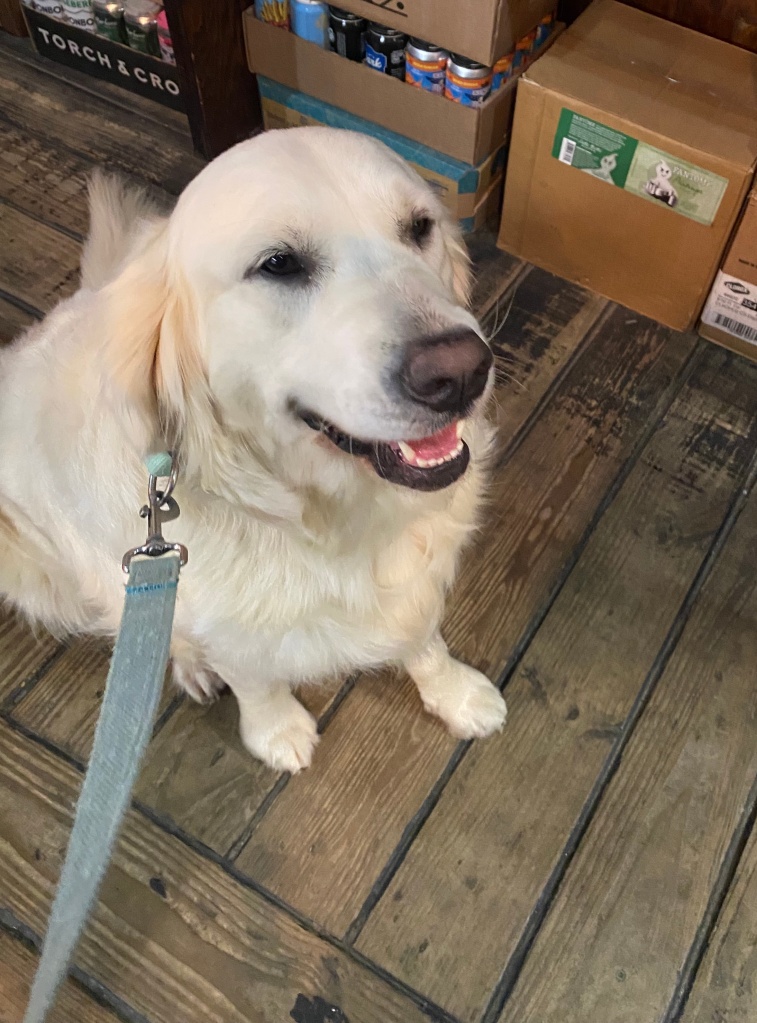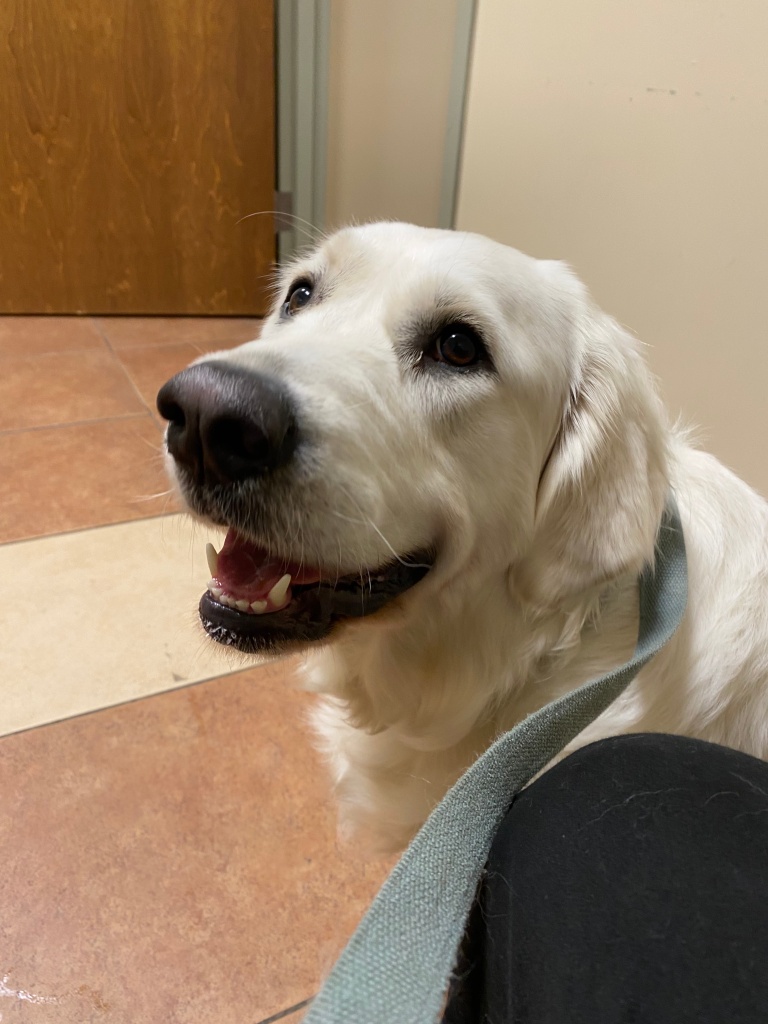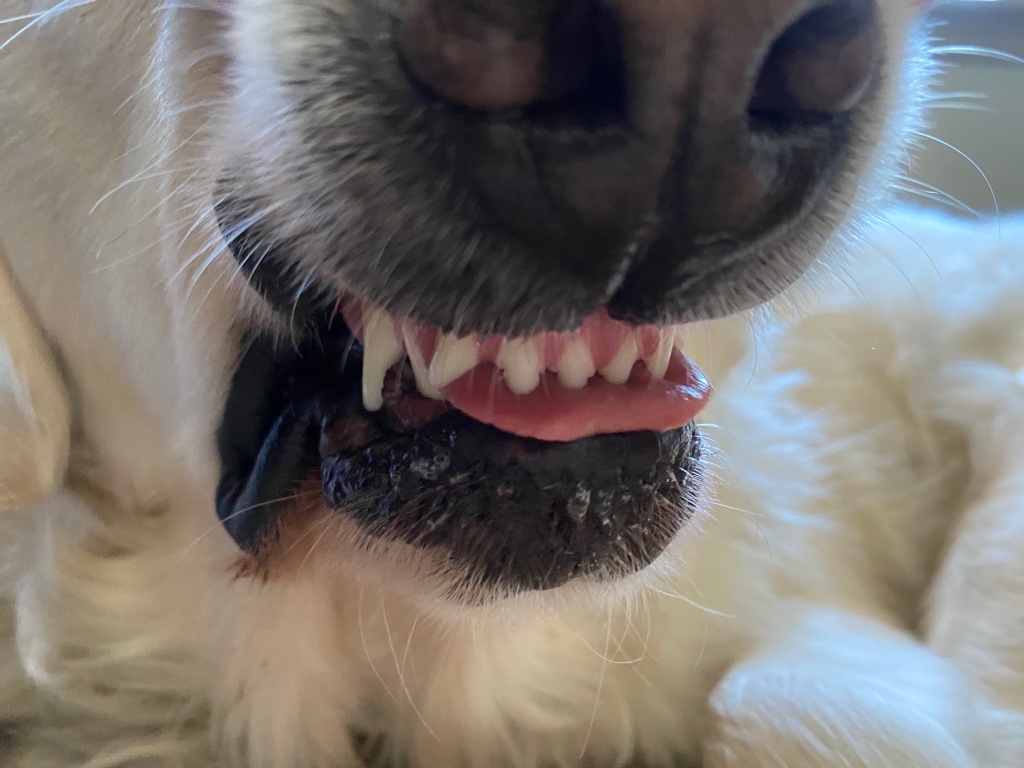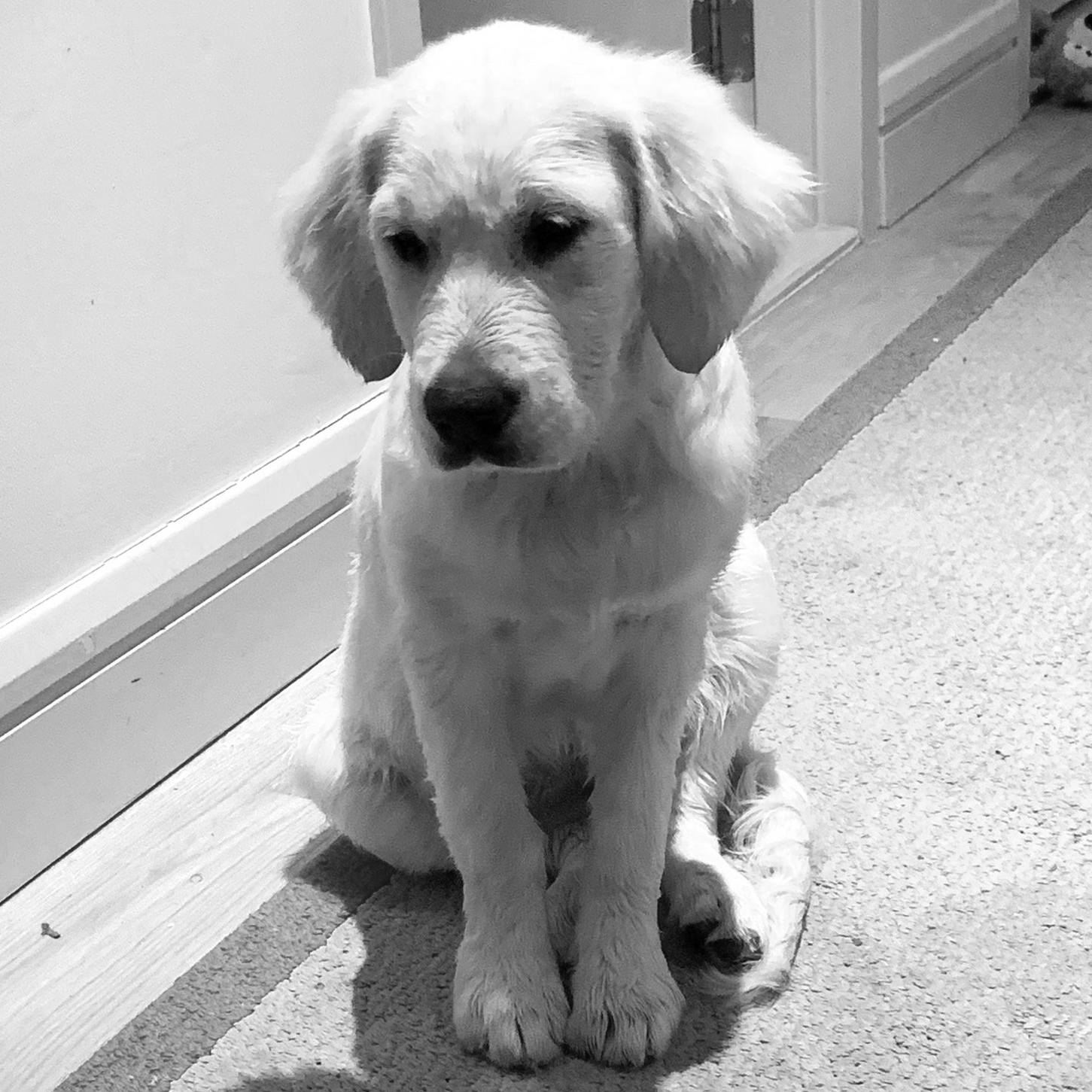I’ve spent a lot of time in the vet’s office with Sweet Baby L. Usually we are there for stomach issues, her skin allergies, or her routine things like vaccines. Thank God for pet insurance. Somehow, in all those visits, it never occurred to me to ask about her teeth.
It was only a few weeks ago that I noticed some redness around her gums and of course, pressed the panic button. How has she never seen a dentist?! She has a beautiful smile, but had I been I completely neglecting her oral health?



I’m happy to report that the fact that Sweet Baby L has never seen a dentist is actually OK. “Your dog does not need to see a veterinary dental specialist regularly,” says Dr. Sydney Warshaw, Resident trained in Dentistry and Oral Surgery at the Cornell University Hospital for Animals. But you should make sure your regular vet is paying close attention to your pup’s dental health. “A well-practicing general veterinarian is more than capable to diagnose, treat, and manage routine periodontal disease.”
How Do I Know If My Dog Is Having Issues With Her Teeth?
“The things we look for are red gums, bleeding gums, or receding gums,” says Dr. Naomi Hoyer, Assistant Professor and Service Leader, of Dentistry and Oral Surgery at Colorado State University.
“Signs of oral disease include presence of gingivitis or calculus, missing teeth, broken teeth, bad breath, drooling, refusing hard foods, dropping food, inappetence, swelling of the face, pain opening the mouth, becoming head shy or avoiding being touched around the head or mouth,” adds Dr. Warshaw.
And worrisome pup owners take note: “Some dogs are particularly stoic and may not show obvious signs of oral discomfort or pain at home,” explains Dr. Warshaw. “This is why it is the general practitioner’s duty to perform oral exams every time a patient comes into the clinic for a physical exam.”
Periodontal disease often begins with gingivitis which can be prevented with daily bushing, says Dr. Warshaw.
Left untreated, periodontal disease can lead to damage to teeth and the jawbone, resulting in tooth extraction, which can get expensive, adds Dr. Hoyer.


Sounds Like I Should Be Brushing My Dog’s Teeth?
Yes! “The best thing owners do at home is brush their teeth daily,” says Dr. Hoyer, “The reason it’s important is because brushing removes plaque which removes the source of irritation.” Ideally, you are able to brush the teeth every day, but three times a week can still have a positive effect.
Having heard this, I realized how little effort I’d put in here. My husband reminded me that he had, early on, attempted to give Sweet Baby L’s teeth a brushing only to give up when she recoiled in protest.
What If My Dog Hates Having Her Teeth Brushed?
“Not all dogs will tolerate brushing, especially if not introduced to brushing at an early age,” says Dr. Warshaw. “For these pets, routine periodontal assessments and treatment under anesthesia is recommended every 1-2 years, starting at the age of 2-3 years. This timeline may differ based on the individual.”
Both Drs. Hoyer and Warshaw recommend starting slow and focusing on positive reinforcement when introducing your pup to teeth brushing. Their tips for brushing a dog’s teeth include:
- Begin by lifting the pup’s lips and rewarding with a treat
- When your dog is comfortable having the mouth touched, move onto rubbing a finger or soft cloth around the teeth/gums and rewarding with a treat
- Eventually upgrade to a toothbrush
FYI you don’t necessarily need toothpaste! “The mechanical motion of a wet toothbrush is enough to disrupt the plaque that causes inflammation,” says Dr. Warshaw. “If you want, when your pet is comfortable with a toothbrush, toothpaste can be added.”
What About Dental Chews? Do They Work?
Both Drs. Hoyer and Warshaw point toward dental health products that have been vetted and approved by the Veterinary Oral Health Council (VHOC). The current list of products they approve can be found here and covers everything from dental diets to rawhide chews to edible chew treats.
It’s important to note that “while research in a product may show reduction in plaque and/or calculus, this does not treat or prevent progression of disease,” says Dr. Warshaw.
So When Should My Dog See a Dentist?
While your vet should be the first line of defense when it comes to dental care, your pup may need to see a veterinary dentist for issues like jawbone injuries, broken teeth or abscesses, explains Dr. Hoyer.
“Referral to a specialist may be recommended by your general veterinarian if they are not comfortable with oral surgery (surgical extractions), if they suspect endodontic infection, or if oral cancer may be present,” adds Dr. Warshaw. “In these cases, advanced imaging (CT scan) +/- advanced surgical procedures may be warranted.”
